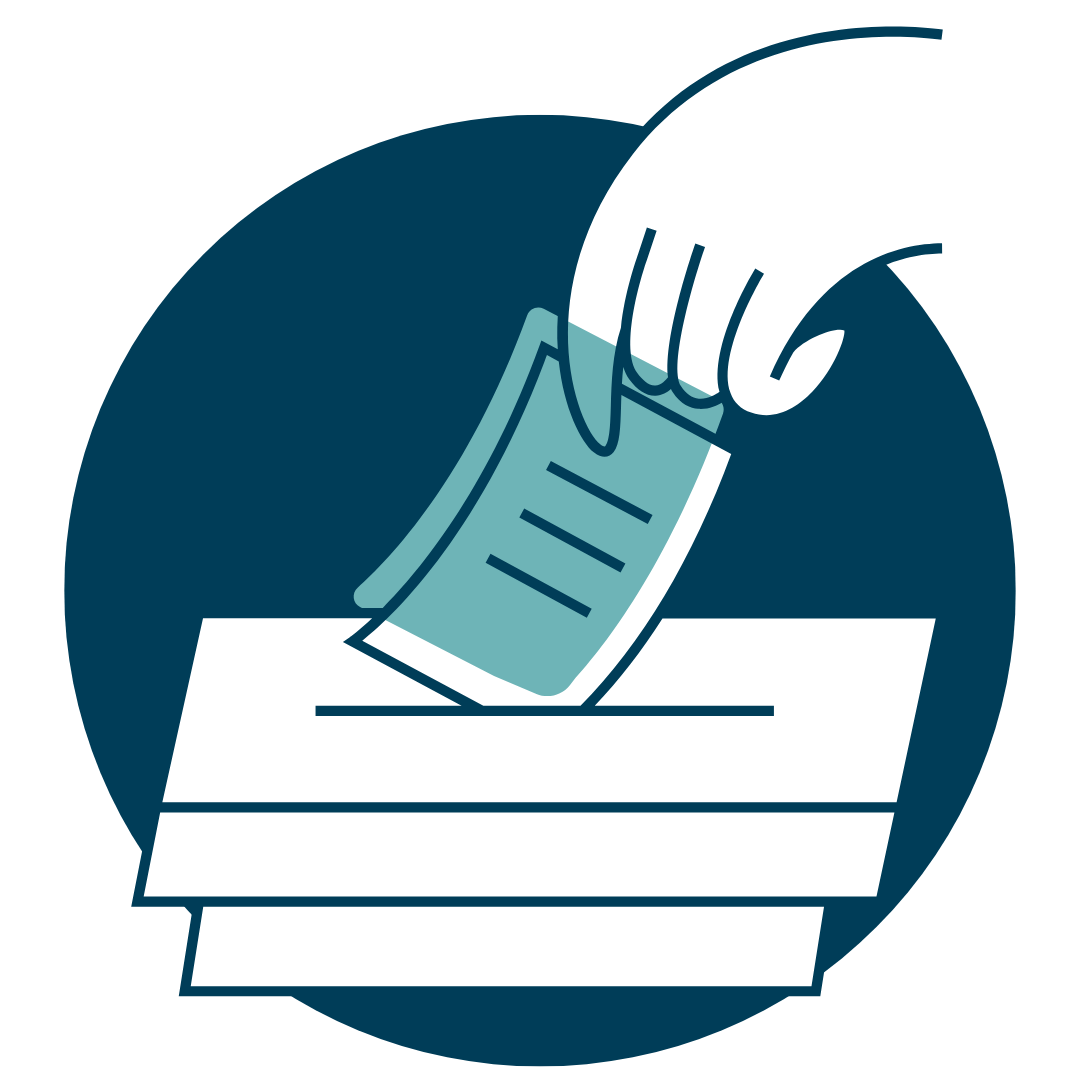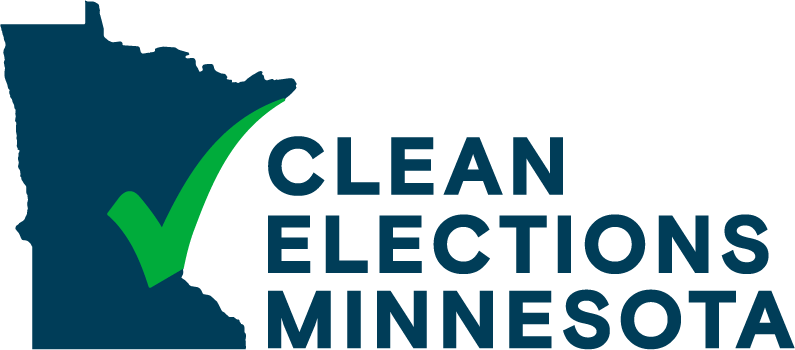
Checks & balances
in Minnesota’s Elections

All Minnesota elections are run locally. Over 30,000 Minnesota election workers – our fellow neighbors and friends – put country over party and work to ensure every election runs smoothly, and that each and every vote is secure and counted accurately as the voter intended.
Election workers are Republicans, Democrats, and Independents. They live in your community, are your neighbors, and include supporters of every candidate on the ballot.
All Minnesota elections use paper ballots, so there is a record of each and every vote. Nonpartisan election officials are legally required to monitor and track every ballot through every stage of the process.
Election results are not final until the last vote is counted. Following the vote count process, election officials from your community check results, including testing for duplicate ballots, verifying voter status, and conducting independent hand count audits of results where they are warranted or required. This ensures that any human errors or fraud attempts are caught and do not have any impact on the outcome.
Our post-election review process, featuring hand-count audits, adds an additional layer of verification, ensuring the accuracy of our results.
Election workers work in a nonpartisan manner at every step of the voting, counting, and reporting processes in Minnesota.
Nonpartisan local election officials and party-balanced election workers make sure that our processes are fair, transparent, accurate, and secure and free of partisan influence or manipulation.
Hear From Minnesota’s Election Officials
Fact vs. Fiction
Common Election Myths
FACT
The Department of Public Safety screens for citizenship and voting eligibility before sending voter registration information to the Office of the Secretary of State.
The Department of Public Safety will review citizenship affirming documentation and ensure the potential voter meets all other eligibility requirements to register in Minnesota before sending their information to the Office of the Secretary of State.
Eligible Minnesotans can expect voter registration through Automatic Voter Registration to take up to 12 weeks due to a thorough review process.
- Rigorous Training: All assigned Division of Vehicle Services workers receive extensive training to verify citizenship documents.
- Document Verification: Counter staff scan applicants’ proof of citizenship documents and confirm that they have correctly classified them.
- Double-Check: A separate team reviews applications and documentation to certify accuracy before they are sent to the Secretary of State, ensuring only eligible applicants are added to voter rolls.
FICTION
Noncitizens will be registered to vote under the new Automatic Voter Registration law.
New voter registrations will only be created once a person has provided documentation of their citizenship and eligibility to vote in the State of Minnesota.
Noncitizen voting is extremely rare. A 2024 study by the University of St. Thomas Law school found only 3 convictions of noncitizens voting in Minnesota between 2015 through 2023 out of 14 million votes. The Heritage Foundation found 23 cases nationally of noncitizen voting from 2003 to 2023. The punishment for noncitizens voting is high- including prison time and thousands of dollars in penalties and potential deportation.
FACT
Ballot-counting machines are tested, verified for accuracy, and certified before every election.
Elections equipment, as a key component of the voting system, is carefully inspected during private and public testing before any election takes place. This testing is required under law and is open to the public for observation.
FICTION
Voting machines are faulty, hacked, or compromised.
There is no evidence showing that any voting machines were faulty, hacked, or compromised in any way. By law, election equipment cannot be connected to the internet. Post-election reviews have always shown accurate and reliable performance from the equipment used in Minnesota. All equipment used in elections is verified through certification processes.
FACT
Electronic voting equipment is the accurate, timely way to determine election results.
Electronic tabulators have been in use in Minnesota for decades. During this time, they have been proven to be more accurate and efficient than any other method of tabulating election results.
FICTION
Hand-counting ballots is a viable way to conduct an election.
Hand counting has been proven to be far less accurate as there is more opportunity for human error. Additionally, hand counting would delay election results for weeks or months, since each race on each ballot needs to be counted separately.
Review the facts
Minnesota’s Election Safeguards
Pre-Election
Voter Registration
Voter registration requires proof of identity and proof of residence, as well as taking an oath of eligibility to vote.
You must be a US Citizen, at least 18 years old by Election Day, have lived in Minnesota for 20 days, not currently incarcerated for a felony conviction and not under a court order that revokes your right to vote Election officials conduct a rigorous review in advance of each election to ensure that each voter meets these qualifications.
Those qualified to vote are registered when they obtain or renew their driver’s license or receive certain state public services. The Minnesota Department of Public Safety (DPS) ensures that potential voters provide documentation of the individual’s citizenship, then the individual’s data is transmitted to the Secretary of State for registration. All applicants must sign the application and declare, under penalty of perjury, that the information and documentation presented in the application is true and correct.
Election officials regularly cross-check with the state and federal agencies that track deaths and changes of address to ensure that dead people and voters who have moved out of state cannot vote. Updating the voter rolls is one of many steps election officials take to ensure all voters who cast ballots are eligible.
Public Accuracy Test
All Minnesota counties and municipalities are required to administer public accuracy tests of voting equipment before every election.
These events must be open to all members of the public and observed by at least two election judges from different political parties.
Training
Officials and election judges must take an oath and receive training on how to run a Minnesota election in compliance with state and federal laws. Minnesota election judges must be trained and certified. At least two election judges at each site must represent different political parties.
During the Election
Voting in Person
Voters must provide their name and address, and if questioned, their date of birth and must sign an oath that they are eligible and acknowledge giving false information is a felony, punishable by a prison sentence.
Sensitive tasks, like assisting voters or counting ballots, must be conducted by election judges of different political parties.
Voting machines are not connected to the internet, outsiders can’t manipulate them and every vote has a paper ballot.
Ballot integrity is ensured via a daily 3-step matching of the number of ballots issued with the number indicated on the voting machine ballot tabulator and the number of paper ballots in the box. Election judges who count the ballots sign and certify that all of the ballots are properly piled, checked and counted.
Nonpartisan election officials are legally required to monitor and track every ballot through every stage of the process.
Absentee Voting/Early Voting
Absentee ballots require ID verification, a witness, and the voter’s signature. Officials check voter rolls, verify signatures and other voter information, using technology to track ballots.
If a voter’s ballot is accepted, it is entered into the Statewide Voter Registration System to ensure they cannot vote again on election day.
The post office is required by law to prioritize monitoring and delivery of election mail to ensure it is delivered on time.
Drop boxes, if available, are provided and maintained by the county auditor or municipal clerk, not the USPS.
Non-partisan election officials are legally required to monitor and track every ballot through every stage of the process.
Post-Election
Public Tests, Audits, and Records
Election Night the election officials enter unofficial election results on the Office of the Secretary of State’s website. Following the vote count process, election officials from your community check for duplicate ballots, verify voter status, conduct independent audits of results and conduct recounts where they are warranted or required.
If a recount process is warranted or required, the recount process is determined and detailed by Minnesota law. Recounts are open to the public. Viewing areas are established for the public to watch the recounting of ballots and attend all county and State Canvassing Board meetings.
A bipartisan post-election audit is conducted to certify the election for local, state and federal elections, which are open to the public, and includes a final report for all counties.
After the audit, all ballots are kept in protected storage for 22 months.
A formal complaint and public recount process already exists to address the very negligible errors that can occur.
Get More Information About Minnesota’s Elections
Information provided above is courtesy of the League of Women Voters and the Minnesota Secretary of State’s Office.
